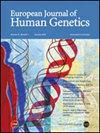确定罕见病家庭的复杂需求--以端粒生物学疾病为例。
IF 3.7
2区 生物学
Q2 BIOCHEMISTRY & MOLECULAR BIOLOGY
引用次数: 0
摘要
鉴于疾病的异质性、慢性性和潜在的严重性,患有端粒生物学疾病(TBDs)等罕见疾病的家庭可能有大量需求未得到满足。端粒生物失调症是一种罕见的遗传性综合征,具有骨髓衰竭、癌症、肺纤维化和其他严重慢性并发症的高风险。为了找出临床护理方面的差距,我们旨在确定TBDs患者的成年人和家庭照顾者(目前或失去亲人者)认为尚未满足的需求。参与者年龄≥18 岁,自我报告确诊为 TBD,和/或曾经照顾过一位或多位 TBD 患者家属。参与者完成了在线调查(35 人)和/或电话录音访谈(32 人)。我们在 SPSS 中计算了描述性统计数据,并对访谈记录进行了主题分析。定量和定性数据同时进行分析。大多数参与者年龄≥35 岁,女性,受过高等教育,有医疗保险。调查对象报告了许多在社会心理、医疗、财务和日常活动方面未得到满足的需求。在访谈中,受访者的描述证实了这些未满足需求的显著性,并将其具体化。定性和定量数据都指出了在解决长期家庭困扰和专科护理协调方面的严重不足。由于存在大量未满足的需求,TBD 患者的成年人和照顾者极有可能出现不良的社会心理后遗症。这些发现为了解罕见病家庭护理差距的范围和程度奠定了基础,尤其是 TBDs,但也可能适用于其他疾病。需要有患者、家属、临床医生、研究人员和患者权益团体参与的量身定制的多学科干预措施,以适当满足所有罕见病的护理需求。本文章由计算机程序翻译,如有差异,请以英文原文为准。
Defining the complex needs of families with rare diseases—the example of telomere biology disorders
Families with rare diseases, such as telomere biology disorders (TBDs), may have extensive unmet needs given the heterogeneity, chronicity, and potential severity of illness. TBDs are rare inherited syndromes associated with high risk of bone marrow failure, cancer, pulmonary fibrosis, and other severe, chronic complications. To identify gaps in clinical care, we aimed to ascertain the perceived unmet needs of adults and family caregivers, current or bereaved, of individuals with TBDs. Participants were aged ≥18 years with a self-reported TBD diagnosis and/or ever caregivers to one or more family members with a TBD. Participants completed an online survey (N = 35) and/or an audio-recorded telephone interview (N = 32). We calculated descriptive statistics in SPSS and thematically analyzed interview transcripts. Quantitative and qualitative data were analyzed concurrently. Most participants were aged ≥35 years, female, highly educated, and medically insured. Survey respondents reported numerous unmet needs in psychosocial, medical, financial, and daily activity domains. In interviews, participant descriptions validated and contextualized the salience of these unmet needs. Both qualitative and quantitative data identified critical shortfalls in addressing chronic family distress and specialty care coordination. Adults and caregivers of individuals with TBDs have a high risk of adverse psychosocial sequelae given extensive unmet needs. These findings provide a foundation for understanding the range and extent of gaps in care for families with rare diseases, especially TBDs but that are likely applicable to others. Tailored multi-disciplinary interventions involving patients, families, clinicians, researchers, and patient advocacy communities are required to appropriately address care needs for all rare diseases.
求助全文
通过发布文献求助,成功后即可免费获取论文全文。
去求助
来源期刊

European Journal of Human Genetics
生物-生化与分子生物学
CiteScore
9.90
自引率
5.80%
发文量
216
审稿时长
2 months
期刊介绍:
The European Journal of Human Genetics is the official journal of the European Society of Human Genetics, publishing high-quality, original research papers, short reports and reviews in the rapidly expanding field of human genetics and genomics. It covers molecular, clinical and cytogenetics, interfacing between advanced biomedical research and the clinician, and bridging the great diversity of facilities, resources and viewpoints in the genetics community.
Key areas include:
-Monogenic and multifactorial disorders
-Development and malformation
-Hereditary cancer
-Medical Genomics
-Gene mapping and functional studies
-Genotype-phenotype correlations
-Genetic variation and genome diversity
-Statistical and computational genetics
-Bioinformatics
-Advances in diagnostics
-Therapy and prevention
-Animal models
-Genetic services
-Community genetics
 求助内容:
求助内容: 应助结果提醒方式:
应助结果提醒方式:


